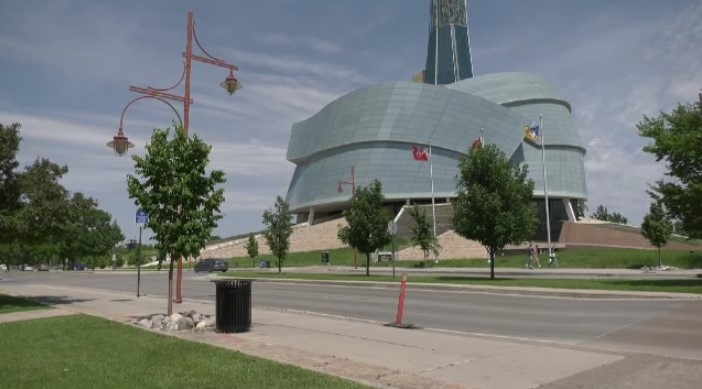Canadian Museum for Human Rights hosts symposium on homelessness and poverty

The Canadian Museum for Human Rights served as the backdrop for a symposium on homelessness and poverty Monday.
Not-for-profit organizations, elected officials, and those who have experienced homelessness first-hand, came together to discuss the root causes of homelessness and how to tackle the crisis.
“These are people coming together with a variety of different perspectives,” organizer Al Wiebe told CTV News.
Wiebe spent nearly two-and-a-half years living on the street after he lost his job. Now, he serves as an advocate for unsheltered people.
“Every story is different, but the same, because it goes to the barriers to get helping,” Wiebe explained.
Main Street Project’s Jamil Mahmood estimates there are around 4,000 unsheltered people living in Winnipeg right now, and said those numbers fluctuate based on the time of year.
“So, we’re coming to the warmer seasons with obviously more folks out on the street or experiencing homelessness,” Mahmood said. “It’s a pretty big problem and a challenge that we have to face here.”
Around 100 people attending the symposium heard about the right to housing, food security, and healthcare. They also participated in round-table discussions to share ideas on how to solve issues surrounding homelessness.
Wiebe said most conversations centered on building affordable housing units and providing social support.
“Giving them what they need – not only to survive in housing, but to thrive in housing,” Wiebe said.
City councillor Markus Chambers, who chairs Winnipeg’s human rights committee, helped Wiebe put on the event. He said it is critical for all levels of government to collaborate with people working in social services.
“They know first-hand what the city needs to address the issue of homelessness,” Chambers explained. “We’re hoping as a city to take away some of the comments they’re making.”
Earlier this month, the Manitoba government announced a $30 million plan to help address homelessness; primarily through increasing the province’s affordable housing supply.
View original article here Source




